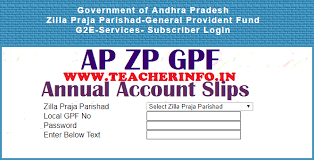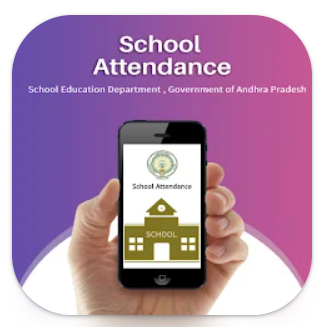Rc.No. 1/NTF/SCERT/2020 Dated: 24/12/2020
Sub : School Education – SCERT, AP – 1st National Toy Fair from 27/02/21 to 02/03/21 (4 days) in a virtual mode – Certain instructions along with guidelines – Communicated – Reg.
Ref: Minutes of preliminary meeting of 1st National Toy Fair 2021 held with all nodal officers of CBSE, SCERT and IIT Gandhinagar on 18.12.2020 in virtual mode
ORDER:
All the Regional Joint Directors of School Education, all the District Educational Officers and all Additional Project Coordinators in the state are informed that the Honorable Prime Minister, in his Mann Ki Baat address on August 30th 2020, highlighted the huge potential of Toys market and the opportunities that can be tapped in order to promote 'Aatma Nirbhar Indian Toys'.
2. Learning through play is an important part of a child’s development. Toys and games help children develop their senses, problem solving skills, conflict resolution and much more. Children learn to care, to wait for their turn and to accept other’s views when they play with other children. Playing with toys also develop fine and gross motor skills of children. Toys nurture creativity, imagination and values such as cooperation, sharing, respect for others. Education aims at the all-round development of a child which involves development of cognitive, psychomotor and affective domains. To achieve this objective, children need varied experiences involving construction of new knowledge, by connecting with the existing ones.
3. Toys or games, physical or virtual, are learner friendly tools. They have been used since time immemorial for children to engage in variety of plays. Over time, the form of toys and the materials used to make toys have evolved, particularly with the development of technology; yet, the importance of toys in learning continues.
4. With the aim to provide active and joyful learning to children by including them in the teaching learning process and pedagogy, and thereby promoting the indigenous toy industry, the Ministry of Textiles, in collaboration with other ministries including Ministry of Education, is organizing the First National Toy Fair in a Virtual mode from 27/02/21 to 02/03/21 (4 days).
5. In view of the above, the SCERT, AP is supposed to participate in the National Toy Fair 2021 along with schools and teachers for displaying the state exhibits in this exhibition ( Virtual ).
6. Further, a webex meeting scheduled on 31.12.2020 from 11.00 a.m to 12 Noon with all the Principals of TEIs, District Science Officers and Academic Monitoring Officers of Samagra Shiksha to discuss the plan of action and other aspects regarding 1st National Toy Fair 2021. ( the link will be shared shortly )
7. Therefore, all the District Educational Officers are requested to communicate the guidelines of the National Toy Fair 2021 (annexed) to all the Headmasters, teachers, Principals of TEIs in your jurisdiction so as to enable them to prepare the toys as per the guidelines. Further the prepared toys will be examined by the experts through virtual mode and the best ones will be selected for display in National Toy Fair 2021. The Principals of TEIs are requested to ensure the best toys from their student teachers and to coordinate with the concerned District Educational Officer and Academic Monitoring Officer, Samagra Shiksha for selection of best exhibits for the National Toy Fair 2021.
1st NATIONAL TOY FAIR 2021
GUIDELINES FOR PARTICIPANTS
Learning through play is an important part of a child’s development. Toys and games help children develop their senses, problem solving skills, conflict resolution and much more. Children learn to care, to wait for their turn and to accept other’s views when they play with other children. Playing with toys also develop fine and gross motor skills of children. Toys nurture creativity, imagination and values such as cooperation, sharing, respect for others. Education aims at the all round development of a child which involves development of cognitive, psychomotor and affective domains. To achieve this objective, children need varied experiences involving construction of new knowledge, by connecting with the existing ones.
Toys or games, physical or virtual, are learner friendly tools. They have been used since time immemorial for children to engage in variety of plays. Over time, the form of toys and the materials used to make toys have evolved, particularly with the development of technology; yet, the importance of toys in learning continues.
The Honorable Prime Minister, in his Mann Ki Baat address on August 30th 2020, highlighted the huge potential of Toys market and the opportunities that can be tapped in order to promote 'Aatma Nirbhar Indian Toys'.
With the aim to provide active and joyful learning to children by including them in the teaching learning process and pedagogy, and thereby promoting the indigenous toy industry, the Ministry of Textiles, in collaboration with other ministries including Ministry of Education, is organizing the First National Toy Fair in a Virtual mode from 27/02/21 to 02/03/21 (4 days).
PARTICIPANTS: In this Fair, there will be 75 Exhibition Stalls for Department of School Education & Literacy (DoSEL), Ministry of Education, Government of India. NCERT, SCERTs, CBSE along with their schools and teachers, and IIT Gandhi Nagar will be displaying their exhibits in these exhibition Slots/Stalls.
OBJECTIVES:
· To provide opportunities to organizations, teachers and teacher educators, to showcase various ‘Educational Toys’ developed by them and to explain the usefulness of toys in learning and understanding various aspects and concepts of various Subjects such as; Environmental Studies, Science, Mathematics, Languages, Social Science, Vocational Education etc.
· To provide a platform for children to express and pursue their natural curiosity, creativity, innovation and inventiveness.
· To inspire children to conceive innovative ideas in making of educational toys.
· To make children have better understanding of the concepts by constructing toys.
· To lay emphasis on the inquiry and experiential learning as a major instrument for achieving goals of self–reliance, socio–economic and socio–ecological development of the nation and the world.
· To make children aware about how toys have been developed and influenced by many diverse individuals, cultures, societies and environment.
· To appreciate the role of toys/games in learning process and development of skills by using low cost/ no cost and eco- friendly material in making of toys.
CATEGORIES OF TOYS WHICH CAN BE INCLUDED IN TOY FAIR
a) Existing indigenous toys/games
b) Online toys- Mobile/ Web apps, Digital Toys (developmentally appropriate) and
c) Physical toys:
· Electronic based
· Board Games/Card Games
· Puzzles/Board mazes/digital mazes
· Craft/Material Based/Static Toys (includes variety of Puppets and Clay Modeling items); such as magic clay in the form of kinetic dough with stencils
· Dynamic/Moving Toys (includes Mechanical/Mechatronics)
d) Educational Kits for different ages and stages (with user manual)
e) Do It Yourself (DIY) (Which can be made by children in the classroom)
SUGGESTIVE THEMES FOR VIRTUAL TOY FAIR
Educational Toys for---
a. Learning about Indian Culture, Mythology and History, Knowledge of India and Ethos
b. Learning, Education and Schooling
- inculcating Social and human values
-Occupations & specific fields
-Environment
- Educational Toys for Divyang Children /Inclusive Toys
- Toys for Fitness and Sports for children
c. Out of the box: Fun and Creative along with logical thinking
d. Rediscovering/redesigning traditional Indian Toys
TARGET GROUPS: Students and Teachers of the following stages of schooling:
a) Foundational Stage (Preschool, Balvatika and Classes 1 and 2)
b) Primary,
c) Upper Primary
d) Secondary
e) Senior Secondary
Guidelines for Preparation of Toys/Games:
Guidelines for Preparation of Toys/Games:
The following parameters may be considered while creating and constructing toys and games:
1. The Toys can be designed for any stage, on any theme as mentioned above. Any type of toy /game can be selected.
2. The process of designing /development of toys should be captured through photographs /videos. Demo videos with voice over and running content (in Hindi and English) should be prepared for display.
3. The Toy/game should be mapped with a concept/skill for which it can be used.
4. Each toy/game will be accompanied with its documentation. The documentation should provide the details of:
Ø Objectives
Ø Stage of school education/age group
Ø Material used
Ø Time of preparation
Ø Concept/skills mapped (Pedagogy)
Ø Procedure- how the toys/games can be used
Ø Cost
Ø Adaptation for children with disability (If possible)
6. Educational Kits developed by States/UTs can also be displayed. The kits should have manuals with details about usage of items in the Kit. One sample item of each kit can be highlighted with its name, age group and very brief one -line objective.
7. The DIY toys should capture the process of toy development with children.
8. Use of local-specific materials and ecofriendly resources/materials should be given preference.
9. Toys should be easy to handle and manipulate by ALL children.
10. The designed toys should be durable, safe, and cost effective.
11. More focus should be given to open ended toys to benefit and extend child’s imagination and critical thinking skills.
12. The toys /kits must not be displayed in a cluttered manner; rather a pop up banner or display of name of each of the kit item/toy should come up when the exhibitor names or explains about the item/toy, one by one.
13. All the planning needs to be done keeping in mind the “VIRTUAL EXHIBITION Mode of TOY FAIR”
Guidelines for the development of Electronic toys and Digital Games
Digital games or gamified learning and assessment are stored in digital formats and usually distributed online.
Web and mobile application-based games in the following formats can be developed by exhibiters on the suggested themes:
· Augmented reality application
· Virtual reality
· Simulations
· Artificial intelligence
· Virtual tours
· Robotics
· Age-appropriate STEM/STEAM toys (Science, Technology, Reading Engineering, Arts Math)
· Various indigenous board games in digital format
· Gamified assessment
For each game a concept note covering the following can be developed
· Who are the players?
· Objectives of the game
· Critical thinking and problem solving involved in the game
· Description of experience/s the player would have
(winning, exploration, achievement, collaboration)
· Description of learning and fun element associated to it
· Scheme of Incentivisation
· How it corresponds to the inner motivation of the player
Description of Technical Aspect
· Tools/software/game engine used for the development of game
· Gaming Platform (PC/Mobile-android iOS/Play station/any other
· Possibility of Integration with DIKSHA Portal and App








